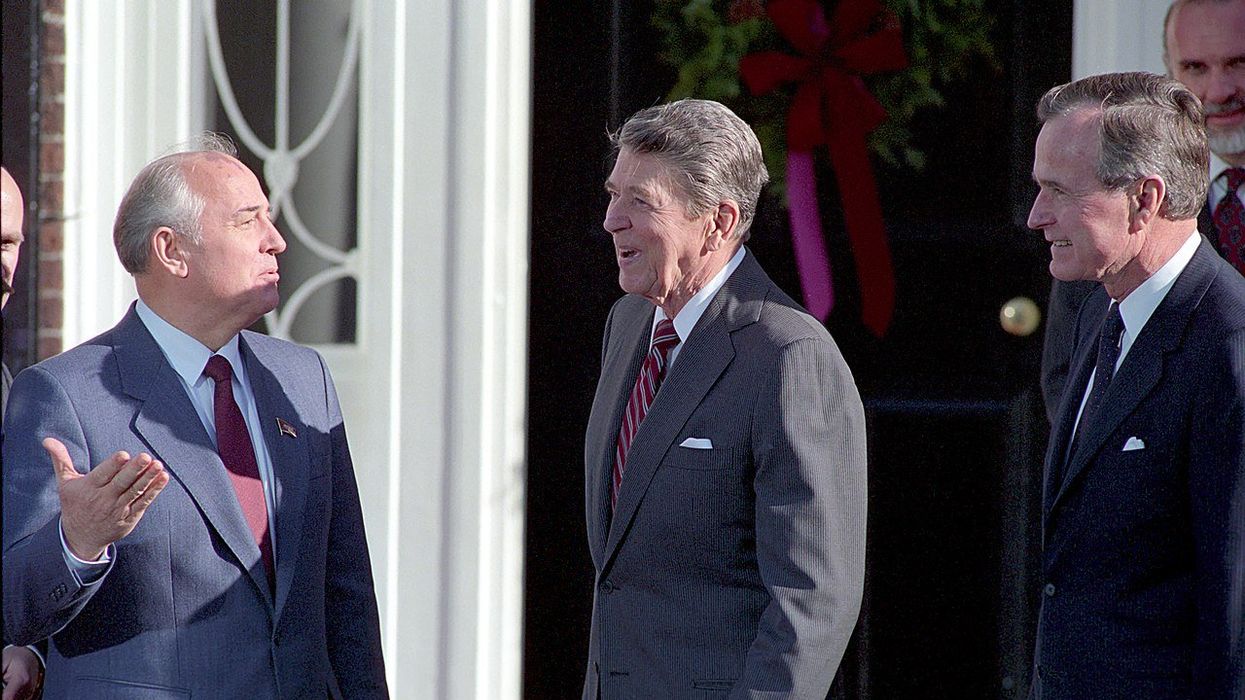More than 300 foreign correspondents have sent Russian Foreign Minister Sergei Lavrov a letter calling for the release of Wall Street Journal reporter Evan Gershkovich, who was detained on March 29 and is being accused of spying by Russian officials — a claim the Journal has denounced as absurd and baseless. The letter to Lavrov was signed by journalists in 22 different countries.
Gershkovich is by no means the first American journalist arrested in Russia on charges that were widely regarded as bogus. Back in 1986 — when Ronald Reagan was president of the United States and Mikhail Gorbachev was leading the Soviet Union — U.S. News and World Report's Nicholas Daniloff was arrested by the KGB in Moscow. At the time, Daniloff was the publication's Moscow bureau chief, and many pundits commented that if Gorbachev and the Kremlin were serious about glasnost and making the Soviet Union less authoritarian, arresting American journalists on false charges was not the way to go about it.
In an op-ed published by the Washington Post on April 24, author/journalist Philip Taubman — himself a former New York Times correspondent in Moscow during the 1980s — looks back on Daniloff's arrest and explains why it is still relevant in 2023.
READ MORE: 'Nuclear hostage': Ukraine blasts Vladimir Putin for deploying nukes to Belarus
"I was among the first Americans in Moscow to learn of Daniloff’s arrest," Taubman recalls. "I still vividly recall the Saturday afternoon in late August 1986 when I picked up the phone in the New York Times Moscow bureau to hear the words, 'Nick Daniloff has been arrested and will be charged with espionage.' The caller was an American living in Moscow who worked part-time as a translator for the Times. The fact that he had secured a long-term visa to work at a Soviet publishing house suggested that he had KGB connections."
Taubman continues, "I immediately called Daniloff's home phone. Ruth, his wife, told me he had gone out to meet a Soviet acquaintance and was long overdue to return home. She was stunned when I told her what I had heard. Within hours, it became clear that Daniloff had been set up by the KGB."
Taubman stresses that hopefully, Gershkovich will be "spared the kind of elaborate facade of manufactured charges that Nicholas Daniloff faced" 36 years ago, but admits that his hope is "probably a pipe dream."
The author/journalist notes that in 1986, Daniloff was freed after George Shultz (secretary of state in the Reagan Administration) worked out a deal with Soviet Foreign Minister Eduard Shevardnadze. But Taubman fears that tensions between the Biden Administration and Russian President Vladimir Putin over Ukraine will work against Gershkovich.
READ MORE: 'Storm clouds gathering': Report details worries in DC as Putin was preparing a full-fledged Ukraine invasion
"Nearly simultaneously with news of the deal (in 1986)," Taubman explains, "the White House and Kremlin announced that Reagan and Gorbachev would meet at a snap summit in Iceland. By contrast, Gershkovich's fate is entangled in a U.S.-Russian relationship inflamed by Russian President Vladimir Putin's brutal invasion of Ukraine and his obsession with perceived threats from the United States and NATO. President Biden and Secretary of State Antony Blinken may wish to follow the crisis resolution model that Reagan and Shultz bequeathed them in the Daniloff affair. But absent the goodwill that existed in 1986, the road to resolution promises to be grueling and littered with phony evidence of espionage."
READ MORE: ‘This is going to get scary’: Putin critics explain why the Ukraine war could grow even deadlier
Read Philip Taubman's full Washington Post op-ed at this link (subscription required).


